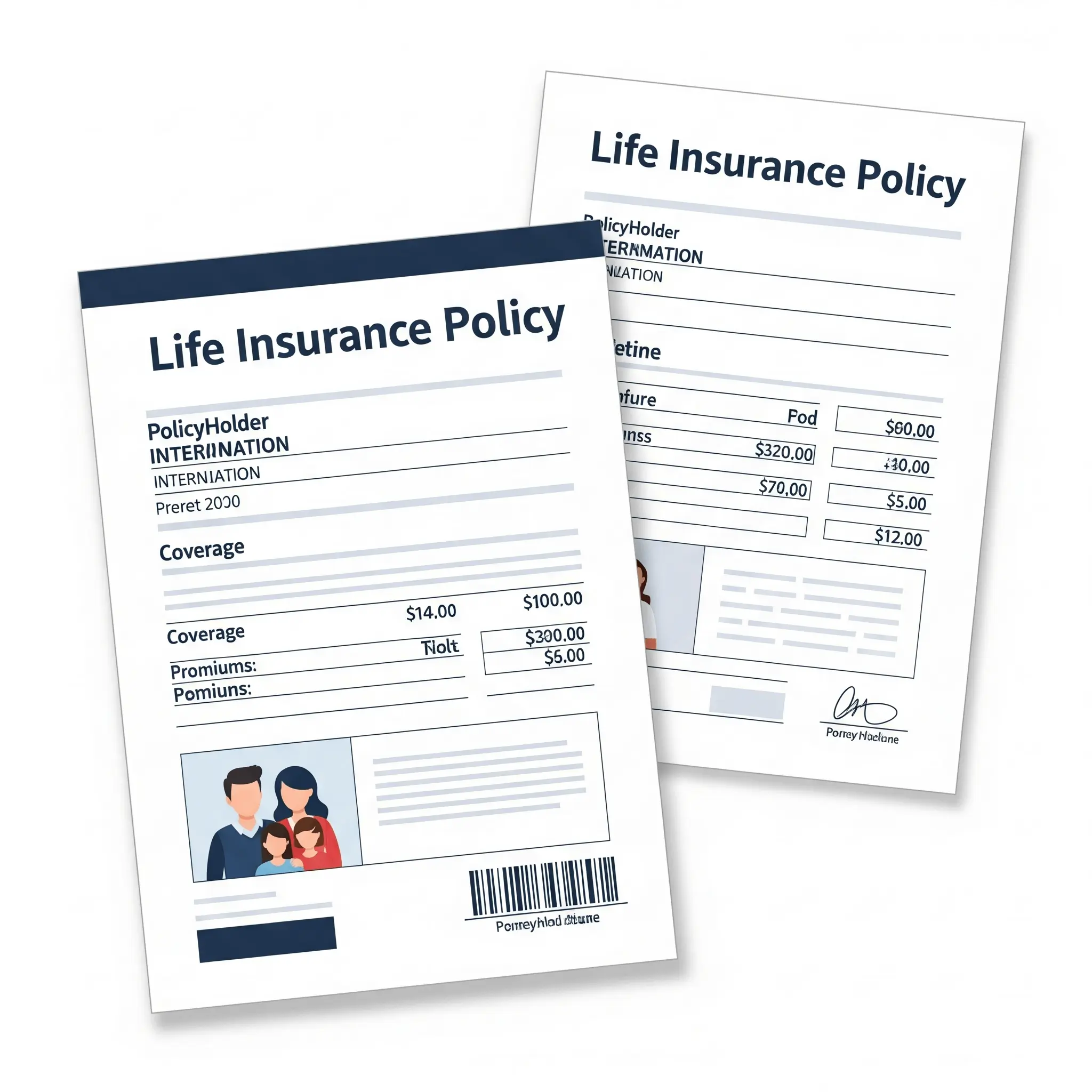Term vs Whole Life Insurance in Canada: What’s Right for You?
Published June 17, 2025 | WealthFusions Financial Insights

Choosing between term life insurance and whole life insurance is one of the most important financial decisions you’ll make—especially for Canadians with dependents or long-term financial goals. This article breaks down the differences between the two, compares real premiums, highlights tax and investment benefits, and offers guidance on selecting the right product based on your stage in life. Let’s get started!
What Is Term Life Insurance?
Term life insurance offers coverage for a specific period—commonly 10, 20, or 30 years. If the policyholder passes away within the term, the beneficiaries receive the death benefit. After the term ends, the policy can expire, be renewed at a higher cost, or converted into a permanent policy.
Best for: Young families, mortgage protection, and short-to-medium-term needs.
Key Features of Term Life:
- Lower initial premiums
- No cash value or investment component
- Can be renewed or converted (up to a certain age)
- Simple to understand and easy to qualify for
What Is Whole Life Insurance?
Whole life insurance is permanent coverage that lasts your entire lifetime. In addition to the death benefit, it includes a cash value component that grows over time on a tax-deferred basis. Premiums are higher but stay level for life.
Best for: Estate planning, lifelong dependents, tax-sheltered savings, and leaving a legacy.
Key Features of Whole Life:
- Lifetime coverage
- Builds guaranteed cash value over time
- Premiums remain constant
- Potential for policy loans or withdrawals
Term vs Whole Life Insurance: Side-by-Side Comparison
| Feature | Term Life | Whole Life |
|---|---|---|
| Coverage Duration | 10–30 years | Lifelong |
| Premium Cost | Low initially, increases on renewal | High but fixed |
| Cash Value | None | Yes (grows tax-deferred) |
| Policy Loans | No | Yes |
| Conversion Option | Yes, before expiry age | Not applicable |
| Best For | Temporary needs | Legacy, long-term planning |
Real Cost Examples in Canada (2025 Estimates)
Below is a comparison of monthly premiums for a non-smoking male, age 35, in good health:
- Term 20 ($500,000): approx. $25/month
- Whole Life ($500,000): approx. $250–$300/month
Over 20 years, the total cost of term = $6,000. For whole life, it’s over $60,000+—but whole life builds cash value and offers lifetime protection.
How to Choose: 5 Key Considerations
- Budget: Term is more affordable upfront.
- Coverage Duration: Term fits time-limited needs; whole life for lifelong protection.
- Wealth Strategy: Whole life offers estate planning and tax-sheltered growth.
- Flexibility: Choose term with convertibility if uncertain.
- Dependents: Whole life is ideal if you have dependents with lifelong needs (e.g., disabled child).
Conclusion: Which Insurance Is Right for You?
If you want affordable protection and only need coverage while your kids are young or your mortgage is active, term life insurance is likely the better fit. However, if your goal is to leave a legacy, build tax-sheltered savings, or protect a business or estate, whole life insurance offers lifelong benefits.
Want expert help? Book a free consultation with one of our licensed insurance advisors today.
Frequently Asked Questions
- 1. Can I convert my term life insurance to whole life later?
- Yes, most term policies in Canada allow conversion to permanent insurance up to age 70 without a medical exam.
- 2. What happens if I outlive my term life insurance?
- The policy expires. You can renew it (at a higher rate), convert it, or apply for a new policy depending on your age and health.
- 3. Is whole life insurance worth the cost?
- It can be, especially if you value lifelong coverage, cash accumulation, and estate planning benefits.
- 4. Is the cash value in whole life insurance taxable?
- No, it grows tax-deferred. Withdrawals may be taxable depending on the amount and timing.
- 5. Are there alternatives to whole life?
- Yes. Universal life and term-to-100 plans are other permanent options with different structures and investment flexibility.
- 6. Do I need life insurance if I’m single?
- If you have debts, dependents, or want to leave money to loved ones or a cause, life insurance may still be worth it.
- 7. How much life insurance should I get?
- A common rule is 7–10x your annual income, but consider debts, family needs, and future goals.
- 8. Is employer life insurance enough?
- Typically, no. Group plans may offer only 1–2x salary and may end when you leave your job.

